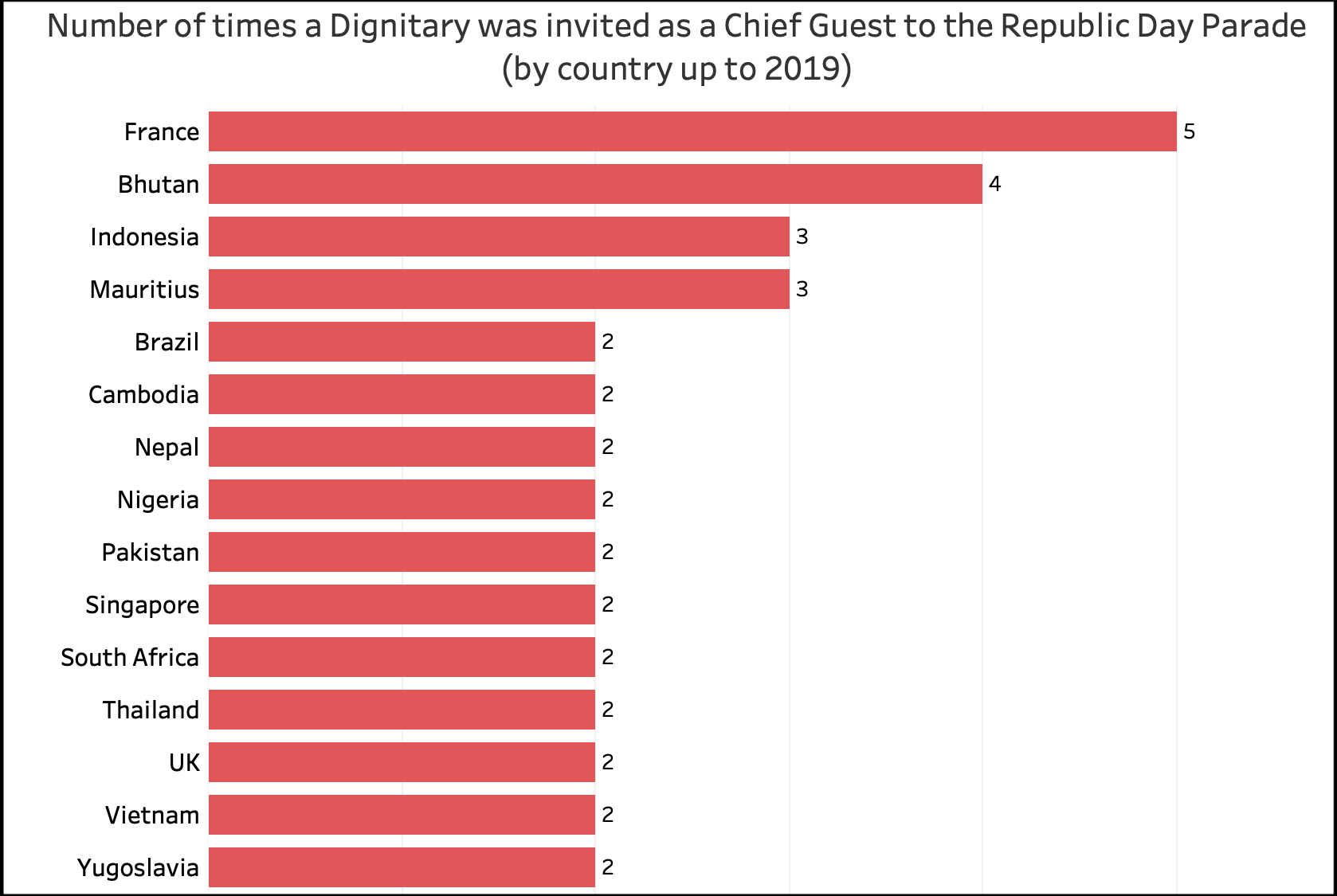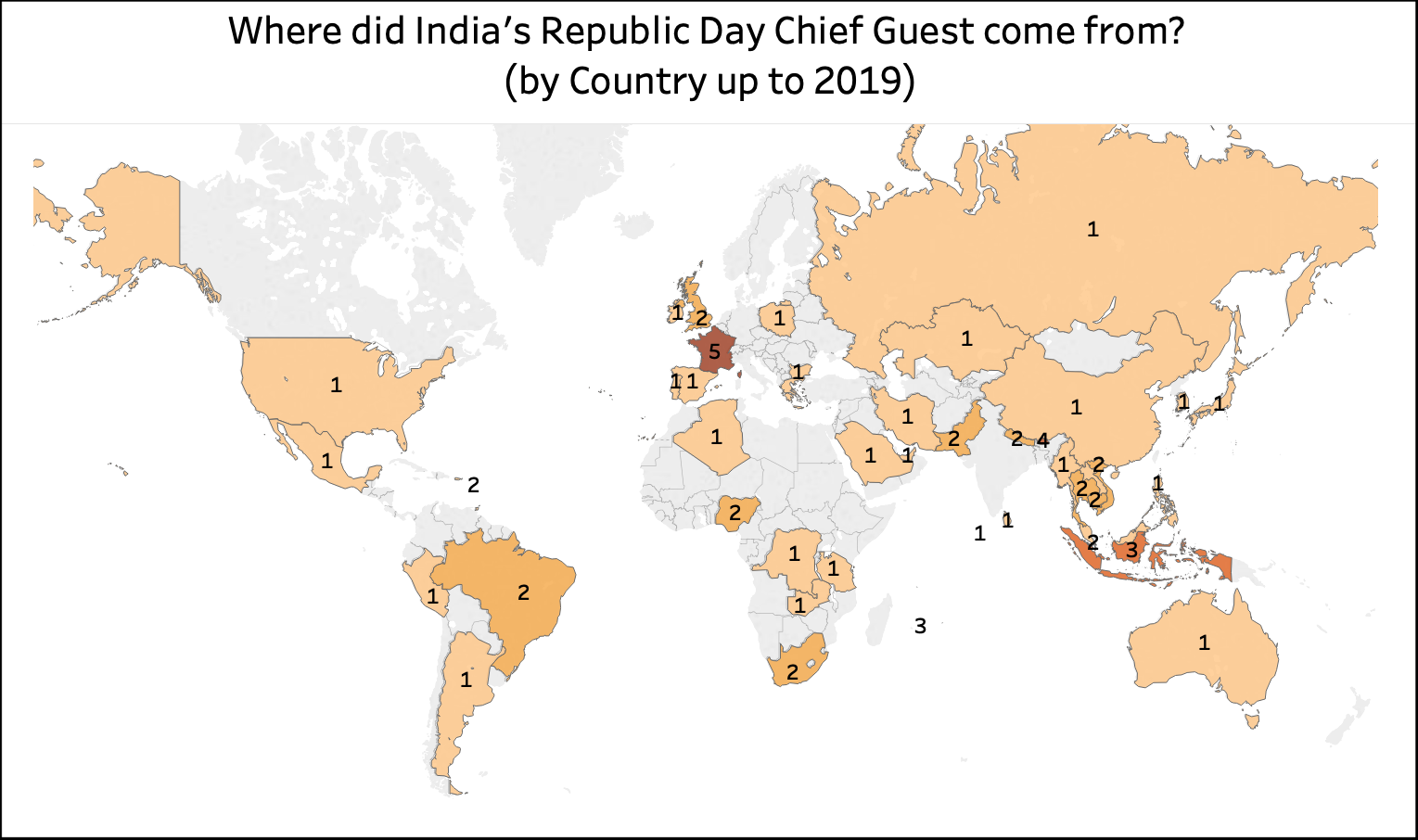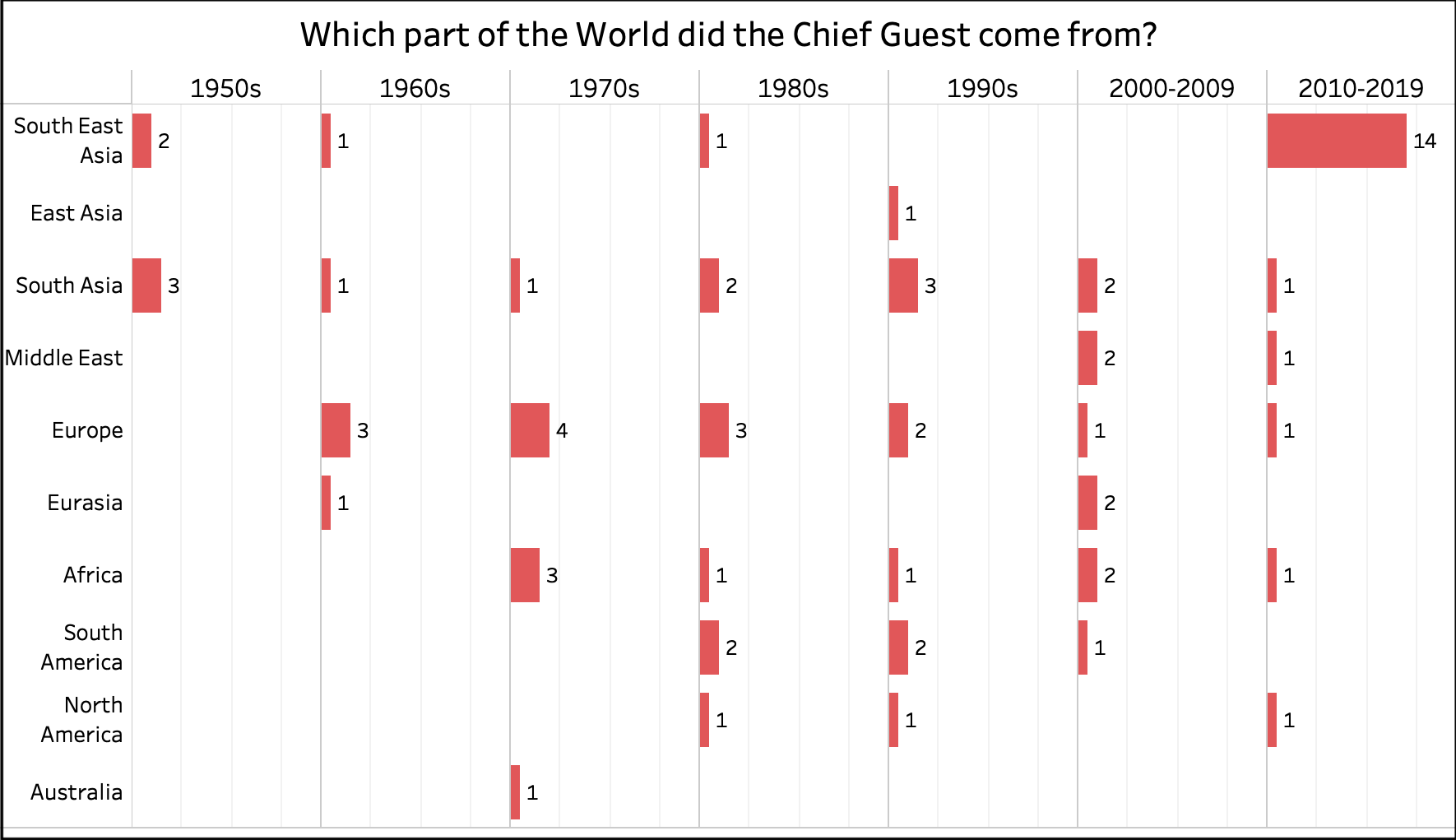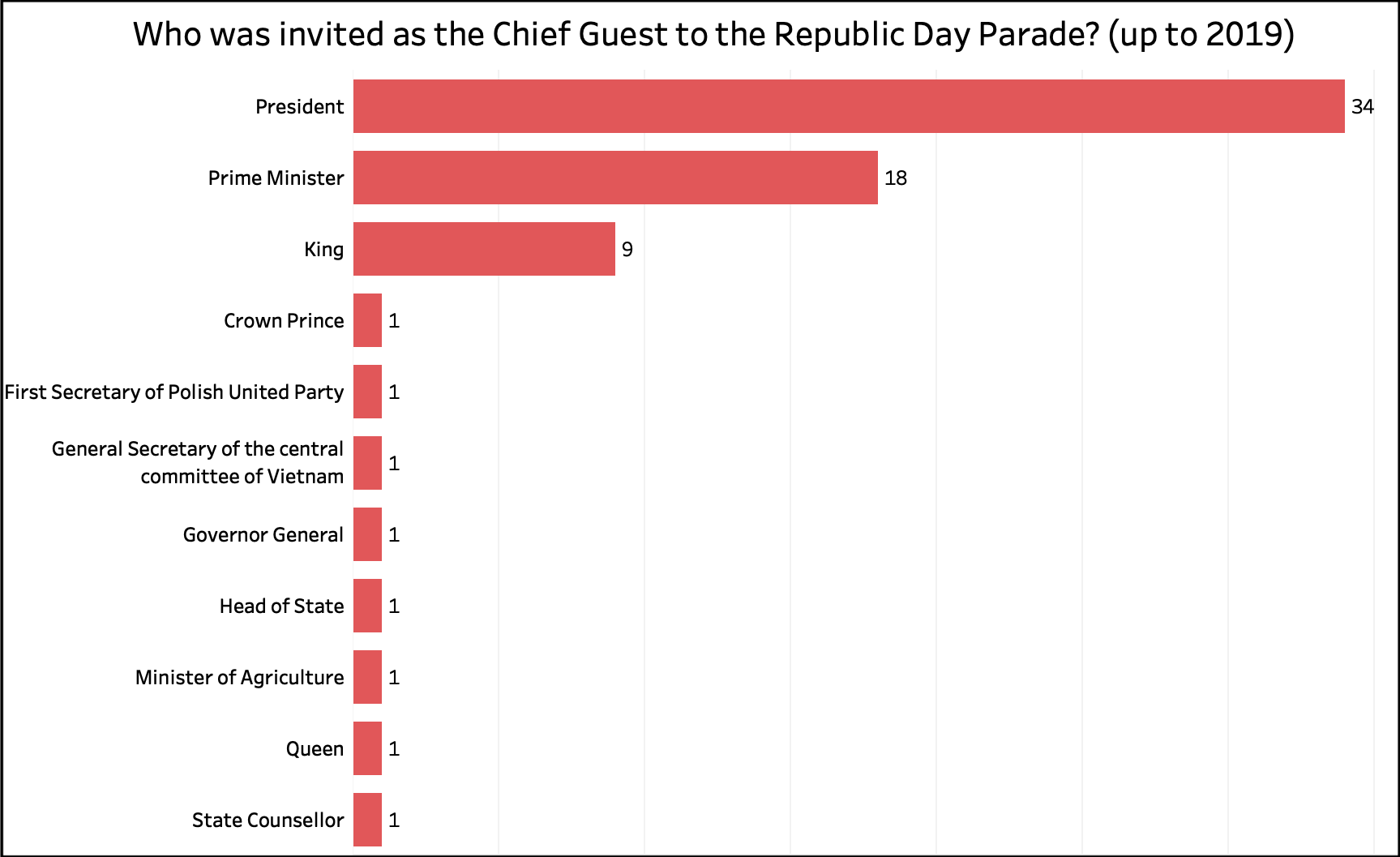[orc]Contrary to popular perception, a dignitary from France was invited on maximum occasions as a Chief Guest to the Republic Day Parade, followed by the King of Bhutan. On 10 different occasions, there was no Chief Guest. The Republic Day parade of 2018 was the first such occasion when there were multiple guests.
India has the tradition of inviting Heads of State and Dignitaries from other countries as the Chief Guest for the annual Republic Day (RD) parade. South African President Cyril Ramaphosa was the Chief Guest this year. The Republic Day parade of 2018 was special in the sense that Heads of State/Dignitaries from 10 Association of Southeast Asian Nations (ASEAN) were invited as Chief Guests. This was also the first time in history that India hosted more than one Guest for the RD parade. Data shared by the Ministry of External Affairs (MEA) in response to an application under RTI reveals some interesting insights about the ‘Chief Guest’ to the Republic Day parade.
There was no ‘Chief Guest’ on 10 occasions
India celebrated the 70th Republic day in 2019. In these 70 years, India always had a Chief Guest for the RD parade except on 10 occasions. Five of these 10 occasions were in the 1950s. India did not have a Chief Guest for the RD parade in 1952, 1953, 1956, 1957, 1959, 1962, 1964, 1966, 1967 and 1970. Since 1971, we have had a Chief Guest every year for the RD parade.
Which country did the Chief Guest come from?
The Chief Guest for India’s RD parade came from 47 different countries till 2019. We have covered most of Asia, parts of Europe, Africa & the Americas. A dignitary from France was the chief guest most number of times (5) followed by Bhutan (4), Indonesia (3) and Mauritius (3). Dignitaries from Brazil, Cambodia, Nepal, Nigeria, Pakistan, Singapore, Thailand, Vietnam, UK, erstwhile Yugoslavia and South Africa were chief guest on two occasions each.
 A dignitary from Pakistan was also the Chief Guest on two occasions; first in 1955 when Malik Ghulam Mohammed, the then Governor General was invited. Then in 1965, Rana Abdul Hamid, who was the then Minister of Agriculture in Pakistan was invited. In fact, this was one of the very few occasions when a person other than a Head of State was invited as the chief guest.
A dignitary from Pakistan was also the Chief Guest on two occasions; first in 1955 when Malik Ghulam Mohammed, the then Governor General was invited. Then in 1965, Rana Abdul Hamid, who was the then Minister of Agriculture in Pakistan was invited. In fact, this was one of the very few occasions when a person other than a Head of State was invited as the chief guest.
Which part of the world did the Chief Guest come from?
In the 1950s, only dignitaries from Asia were invited. India started inviting European dignitaries from the 1960s. In fact, European dignitaries were invited the most number of times in the 1960s, 1970s and even in 1980s. Their number has reduced in the last three decades. Dignitaries from India’s neighbouring South Asian countries were invited in every decade starting with the 1950s. South East Asian dignitaries seem to be the favourties of this decade as 14 of them were invited (including 10 in 2018) between 2010 and 2019. This is a part of India’s ‘Act East Policy‘. A dignitary from the Middle East was invited for the first time in 2003 when the Iranian president Seyed Mohammad Khatami was the Chief Guest.
 Three dignitaries were invited twice
Three dignitaries were invited twice
Of the 60 occasions when a dignitary was invited as the Chief Guest for the RD parade, only three persons were invited twice each. The former French President Jacques Chirac, the 4th King of Bhutan Jigme Singye Wangchuk and the former Yugoslavian President Josip Tito were the only three people who have been invited twice to the RD parade as the Chief Guest. The President of a country was invited on 34 occasions followed by a Prime Minister (18 times). The King of a country was invited 9 times and Queen Elizabeth was invited once. The Crown Prince of UAE was the Chief Guest in 2017. The Chinese Head of State was invited in 1958, the only occasion when a Chinese dignitary was invited.

Featured Image: India’s Republic Day Chief Guests


